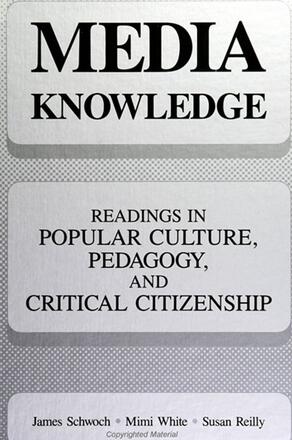
Media Knowledge
Readings in Popular Culture, Pedagogy, and Critical Citizenship
Alternative formats available from:
Description
This book calls for a way of reading and responding to the media culture that is more than passive reception. It argues for the fostering of critical citizenship as the key to engaging, debating, and ultimately reconstructing the concepts and beliefs society brings to bear upon popular culture. The authors analyze contemporary media culture, including television news and dramatic programming, advertising, Hollywood film, and discuss the relationships between technology, culture, and society.
James Schwoch is Assistant Professor in the Department of Radio/TV/Film at Northwestern University, and author of The American Radio Industry and its Latin American Activities. Mimi White is Associate Professor and Chair in the Department of Radio/TV/Film at Northwestern University and the author of Tele-Advising: Therapeutic Discourse in American Television. Susan Reilly is Associate Professor of Mass Communication at Miami University in Oxford, Ohio, and co-author of Writing for the Computer Screen.
Reviews
"No existing work so deftly combines history and cultural analysis of the media age or embraces so wide a range of technologies. " — Cecelia Tichi, Vanderbilt University
"This volume gives critical substance to the idea that media knowledge is more than its seeming facticity, more than the insights brought to us by technologies that possess a privileged and transparent access to the real. Media literacy, as advocated by Schwoch, White, and Reilly, suggests that students and teachers can discover together different ways of examining the tacit assumptions and unarticulated presuppositions that undergird current cultural and social formations and the subjectivities they foster. " — Henry A. Giroux and Peter L. McLaren